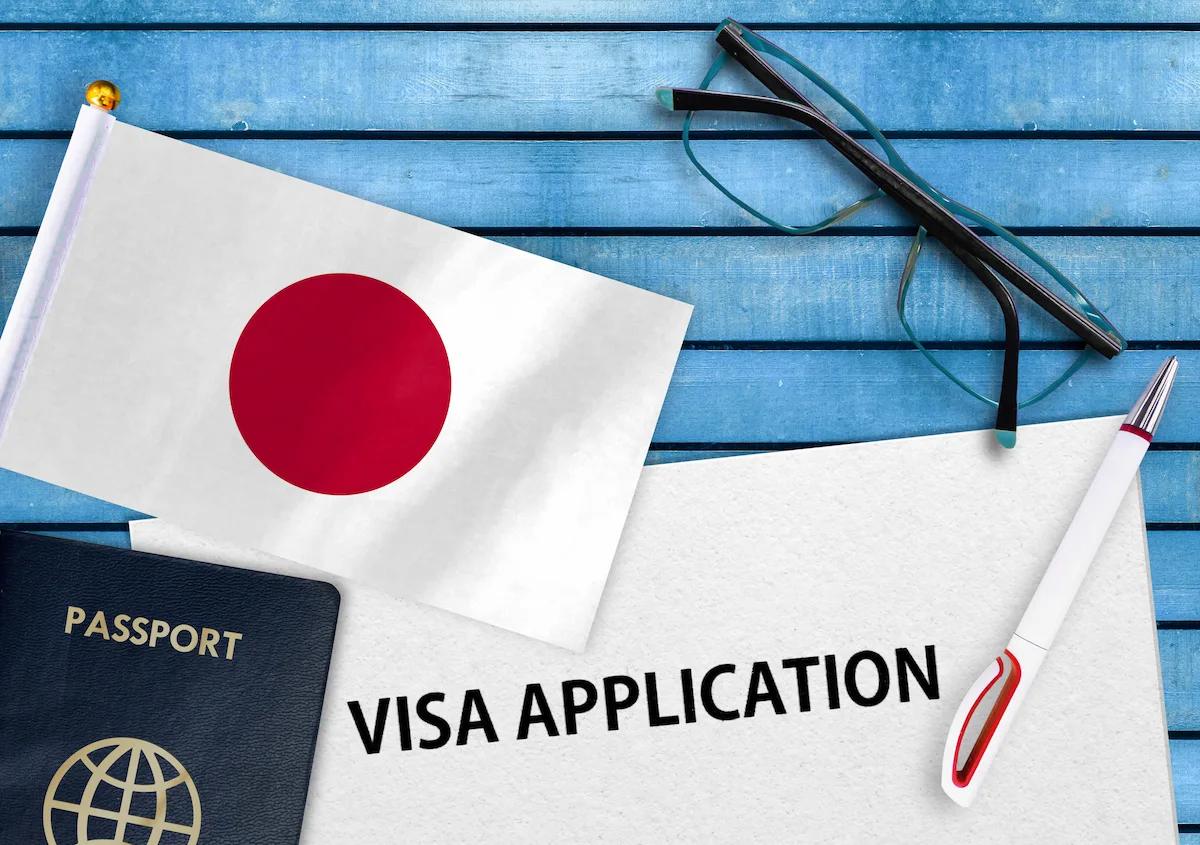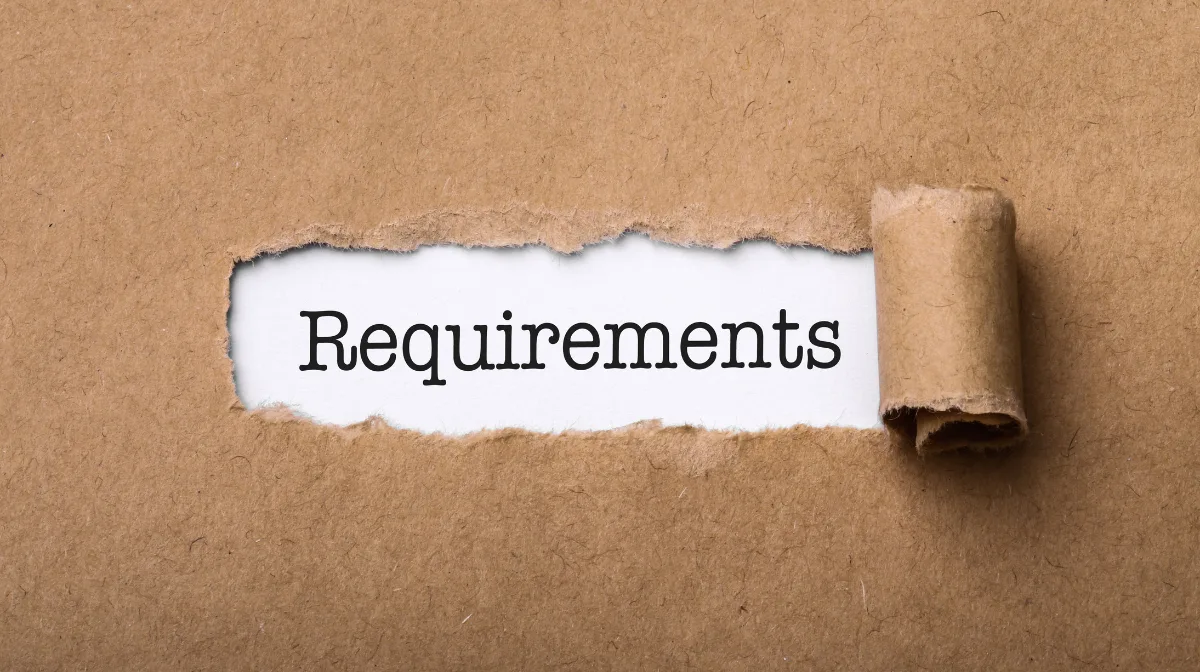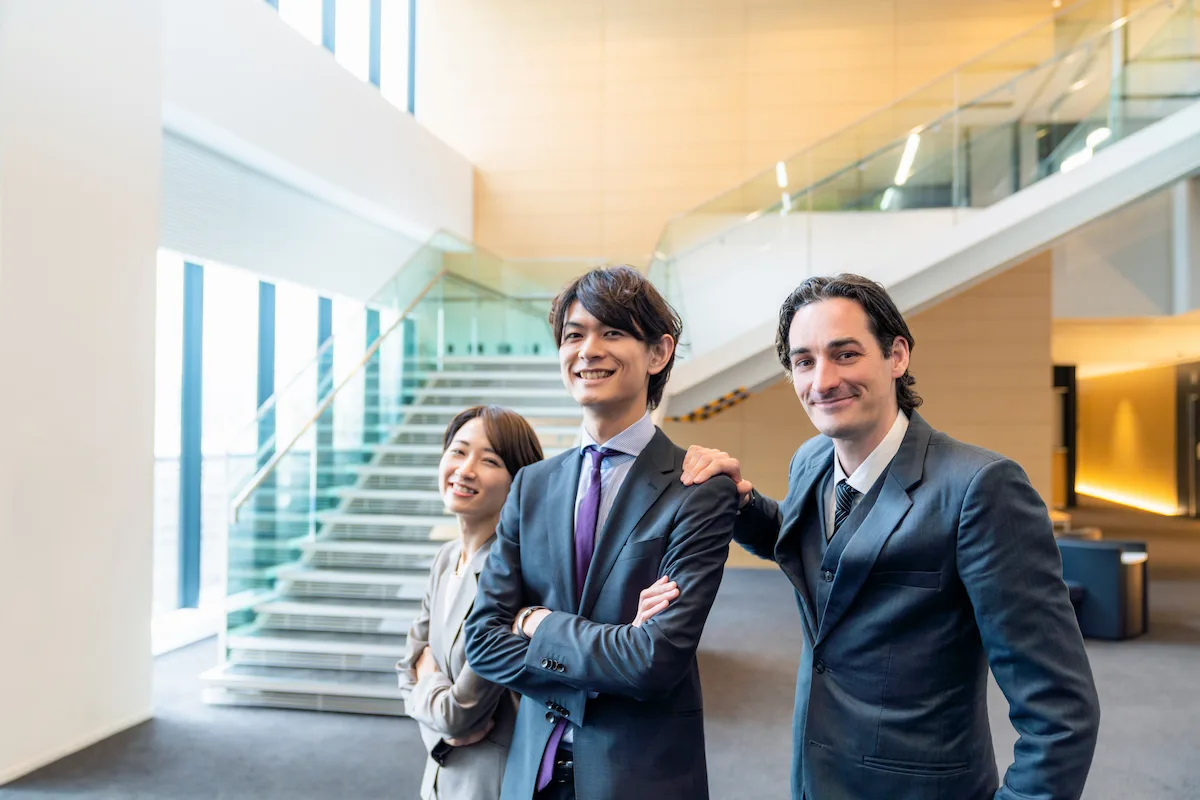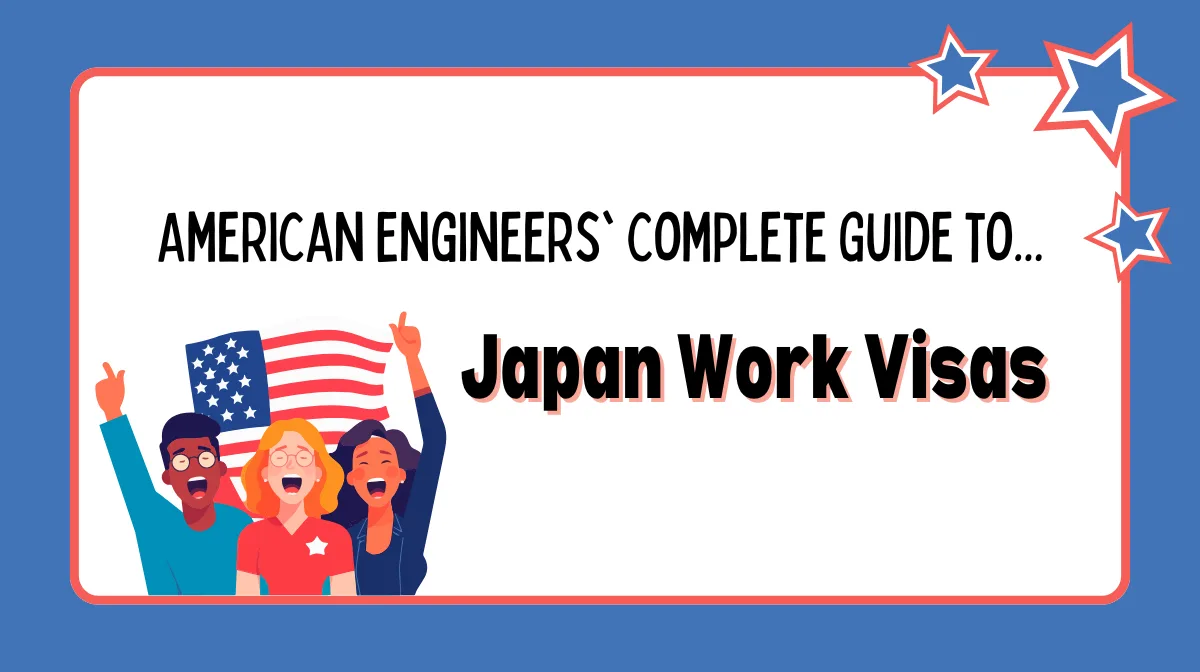The demand for American engineers in Japan is growing. However, the process of obtaining a work visa can be complex, and many find it challenging.
- How to obtain an Engineer visa for Japan
- Qualification requirements for American engineers
- Japanese workplace culture essentials
1. Basics of Japan’s Work Visa System

This article focuses specifically on obtaining the Engineer/Specialist in Humanities/International Services visa (known as the “Gijutsu-Jinbun-Kokusai” or “GJK” visa), explaining the process from application to starting work from an IT engineer’s perspective.
American engineers need to obtain an appropriate work visa to work in Japan.
Japan offers 19 types of work visas, but IT engineers typically obtain the “Engineer/Specialist in Humanities/International Services” visa.(commonly called the “GJK visa”)
Understanding this system is the first step toward a smooth visa acquisition process.
What is the Engineer/Specialist in Humanities/International Services Visa – The Shortcut for IT Engineers
The Engineer/Specialist in Humanities/International Services visa (GJK visa) is the primary work visa for specialized professionals, including IT engineers, working in Japan.
The GJK visa covers three areas: technical fields, humanities fields, and international services fields. IT engineers typically apply under the technical field category.
This residence status is appropriate for professionals with expertise in information engineering and system development.
Characteristics of Work Visas for IT Engineers
The most important factor in work visa applications for IT engineers is technical expertise.
Employment as a systems engineer or programmer is permitted, with particular emphasis on university or college education in information engineering.
Even if you don’t meet the educational requirements, you can still apply with over 10 years of practical experience.
As digital talent is increasingly valued, engineers who can contribute to Japanese companies’ digital transformation initiatives are especially welcome.
Period of Stay and Renewals
The period of stay for a GJK visa can be 3 months, 1 year, 3 years, or 5 years for initial applications. Multiple renewals are possible based on performance.
Points Evaluated During Renewal
- Continuous employment record
- Tax payment status
- Social insurance enrollment status
- Efforts to improve skills in Japan, etc.
2. Work Visa Requirements for American Engineers

To obtain a work visa, you must meet several important requirements.
For IT engineers in particular, three elements are critical to the screening process: educational and professional background, technical skills, and employment conditions.
These requirements are essential to prove that your work in Japan falls under specialized and technical fields.
Reference: Ministry of Foreign Affairs of Japan: Visa (Work/Long-term Stay)
Check the Educational and Professional Background Requirements
As a basic requirement for obtaining a work visa, you need to meet either educational or professional background criteria.
Educational requirements
A university degree is the basic requirement, preferably from an information engineering department. If you have a degree from a junior college, you can meet the requirements by combining it with relevant practical experience.
If you don’t meet the educational requirements
You need more than 10 years of IT-related work experience. Preparation of employment history documentation is mandatory, requiring detailed proof of past practical experience.
Required Skills and Experience Standards
The specific technical skills required of IT engineers are diverse. Particularly important are practical programming abilities and project experience.
Skills and experiences that are evaluation points
- Frontend development: Experience with frameworks such as React or Vue.js
- Experience with cloud services like AWS, Azure, or GCP
- Backend development: Language skills in Java, Python, Ruby, etc.
- Experience building CI/CD pipelines
Salary and Employment Conditions
To obtain a work visa, you must receive a salary level equal to or higher than Japanese engineers. In addition to the base salary, overtime pay, bonuses, and various allowances are also considered.
Enrollment in social insurance is a mandatory condition, and companies are required to provide appropriate employment conditions.
■日本でエンジニアとしてキャリアアップしたい方へ
海外エンジニア転職支援サービス『 Bloomtech Career 』にご相談ください。「英語OK」「ビザサポートあり」「高年収企業」など、外国人エンジニア向けの求人を多数掲載。専任のキャリアアドバイザーが、あなたのスキル・希望に合った最適な日本企業をご紹介します。
▼簡単・無料!30秒で登録完了!まずはお気軽にご連絡ください!
Bloomtech Careerに無料相談してみる
3. Work Visa Application Process for American Engineers

The visa application process begins with preparing the necessary documents, followed by obtaining a Certificate of Eligibility (COE), and finally applying for the visa.
This process typically takes 2-4 months, but proper preparation can enable a smooth application.
Preparation of Necessary Documents and Important Points
A work visa application requires document submissions from both the applicant and the company.
Documents related to the applicant
Passport copy, ID photos, resume, graduation certificate proving educational background, and academic transcript are required. Regarding the academic transcript, it’s important to provide one that shows detailed course information.
Documents submitted by the company
Employment contract, company registration certificate, and financial statements are basic requirements. For newly established companies or under specific conditions, submission of a detailed business plan may also be required.
The above documents are important judgment materials for the application review, so they should be prepared carefully without omission.
How to Apply for a Certificate of Eligibility
The application for a Certificate of Eligibility (COE) is made by the company in Japan to the Immigration Bureau.
The process from application to certification typically takes 1-3 months, and additional materials may be requested during this period.
After submission of application documents, the company’s reception system, business stability, and suitability as a technical expert are comprehensively reviewed. Once the certificate is issued, it needs to be promptly sent to the applicant.
Reference: Immigration Services Agency of Japan: Application for Certificate of Eligibility
Visa Application Procedure at the Japanese Embassy
After receiving the Certificate of Eligibility, the applicant applies for a visa at the local Japanese embassy. Required documents include the original Certificate of Eligibility, passport, visa application form, and ID photo.
The process from application to issuance typically takes 5 days to 2 weeks, but this may vary depending on location and timing. Application fees are also required.
4. Practical Points for Americans Working at Japanese IT Companies

When working at Japanese IT companies, understanding Japan’s unique corporate culture and work methods is important, beyond just technical skills.
Understanding employment contract characteristics, salary systems, and appropriate responses to cultural differences are important elements that lead to long-term success.
Characteristics of Employment Contracts in Japanese Companies
Employment contracts at Japanese IT companies typically involve permanent employment as regular employees.
Although changing, many companies still have seniority-based systems where treatment improves with years of service.
A distinctive feature of Japanese companies is flexibility in job content, where assigned duties may change according to project or team situations.
A culture that emphasizes teamwork is also characteristic, making cooperation important in addition to individual technical skills.
Differences in Salary Systems and Benefits
Japanese companies primarily use a monthly salary system, usually with bonuses paid twice a year. Overtime pay is provided according to legal standards, and benefits are comprehensive.
Specifically, social insurance (health insurance, pension, employment insurance) is fully provided, along with housing allowances, commuting allowances, and in some cases, family allowances.
These conditions vary depending on company size and performance, but foreign employees are entitled to the same conditions as Japanese employees.
How to Adapt to Cultural Differences
It’s important to understand and appropriately respond to cultural characteristics in Japanese IT companies.
Decision-making process
There is a tendency to emphasize consensus among all members, often taking time for careful consensus building.
Reporting, communication, and consultation (“Ho-Ren-So”) habit
This is a very important workplace culture when working in Japan, requiring regular sharing of work progress.
When making technical proposals
Smoother communication is possible by conducting preliminary individual consultations with relevant parties and making explanations based on data and performance.
■日本でエンジニアとしてキャリアアップしたい方へ
海外エンジニア転職支援サービス『 Bloomtech Career 』にご相談ください。「英語OK」「ビザサポートあり」「高年収企業」など、外国人エンジニア向けの求人を多数掲載。専任のキャリアアドバイザーが、あなたのスキル・希望に合った最適な日本企業をご紹介します。
▼簡単・無料!30秒で登録完了!まずはお気軽にご連絡ください!
Bloomtech Careerに無料相談してみる
5. Important Points After Obtaining a Work Visa

Even after obtaining a work visa and starting work in Japan, there are several important procedures and obligations.
From obtaining and managing the residence card to various administrative procedures and residence status renewals, proper management is essential for a stable working life in Japan.
Neglecting these procedures can potentially affect your residence status, so sufficient attention is necessary.
Obtaining and Managing a Residence Card
After entering Japan, you will receive a residence card at the airport. You are required to carry this card at all times, and if there are any changes to the information on it, you must report them within 14 days.
The residence card plays an important role as an ID in Japan, so proper management, including expiration date management, is required.
Reference: Immigration Services Agency of Japan: About the Residence Card
Procedures and Reporting Obligations After Starting Work
Important procedures after starting work
- Resident registration
- Enrollment in health insurance and pension
- Bank account opening
Also, you must notify authorities if you change address or employer. These procedures are required to be completed within specified periods, and delays or neglect can affect your residence status.
Reference: Immigration Services Agency of Japan: Notification of Affiliated Organization
About Renewing and Changing Residence Status
Applications for residence period renewal can be made from 3 months before the expiration date.
Points reviewed during renewal
- Work performance
- Salary payment status
- Tax payment status
- Social insurance premium payment status, etc.
Regarding work performance in particular, evidence showing that you are engaged in duties as initially planned is important.
Also, if there are significant changes in job content, you may need to change your residence status, so it’s recommended to check in advance.
Reference: Immigration Services Agency of Japan: Application for Extension of Period of Stay
6. Work Visa Acquisition for American Engineers in Japan: Ensure “Preparation and Understanding”
Obtaining a work visa in Japan requires thorough preparation and understanding. For IT engineers in particular, proving technical skills and adapting to Japanese corporate culture are important points.
The chances of obtaining a visa are greatly increased by following the appropriate preparation and procedures.
We recommend proceeding with planned application preparation, referring to the content explained in this article.

















